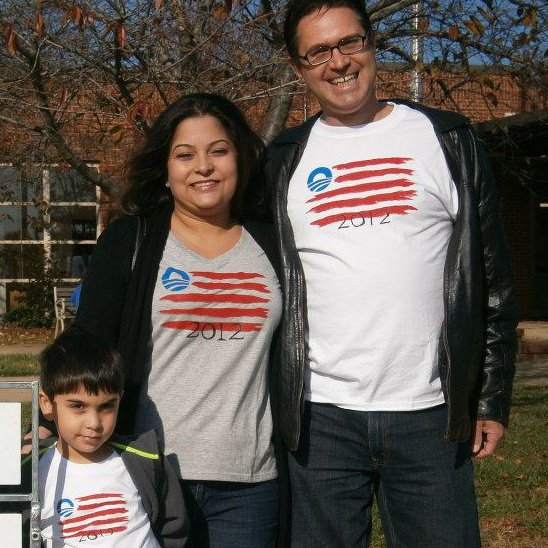It took time and lots of travel for doctoral student Faiza Jamil to realize that the impact teachers can make on the students in their classrooms comes from far more than knowing their subject matter and teaching it well.
“Teachers are not just teaching content, but engaging in meaningful interactions with their students,” Jamil said. “These interactions are contributing to the social, emotional, self-regulatory and cognitive development of their students.”
This interest in the interactions between students and teachers and how best to support teachers in learning about the most effective interactions is what eventually brought Jamil to the University of Virginia’s Curry School of Education. But it was a roundabout journey.
Though her family is Pakistani, Jamil was born and raised in Kuwait, then came to the United States to begin college. After finishing her undergraduate degree at Bryn Mawr College and beginning a career in the Roanoke area in advertising and marketing, Jamil realized her work in the business world did not allow her to impact lives in the way she wanted.
“I thought back on all of the incredible teachers who had helped me love learning, and I decided, ‘I want to teach,’” she said.
She returned to Kuwait, enrolled in a master’s program and began teaching elementary school. Jamil continued her teaching career at international schools in Turkmenistan and Thailand before realizing her true interest was in the ongoing development and support that teachers need once they begin teaching. So she applied to the Curry School.
At U.Va., Jamil joined a team of researchers examining how professional development can increase meaningful interactions between teachers and students and how those interactions increase student learning. This research, taking place at Curry’s Center for Advanced Study of Teaching and Learning, known as CASTL, further impressed upon Jamil the need for ongoing support and training for teachers.
Being prepared to be intentional in their interactions with students is a lot to ask of teachers, on top of everything else that is already demanded of them, Jamil said. Most teacher training programs include very little training on interactions in their curriculum, underscoring the need for teachers to have access to meaningful professional development where this type of training can occur.
“It is a tall order for teacher preparation programs to train teachers with this capability,” she said. “We have a lot to learn about how best to support teaching professionals in gaining expertise in these noncontent areas.”
During her time at CASTL, Jamil was a primary member of a team developing and testing an online course for early childhood teachers, focused on improving the quality of their interactions with young children. Her main contribution to the course was a reflective writing exercise designed to reduce teachers’ stress and help teachers more effectively interact with challenging students in their classroom. The Effective Classroom Interactions project laid the groundwork for a new massive open online course to be offered to pre-K instructors by the Curry School of Education through Coursera in the fall.
“Working on the online course really inspired me to start thinking of how we could translate positive research findings into more accessible and cost-effective professional development for teachers,” Jamil said.
While Jamil will enjoy the pinnacle of her doctoral studies this summer when she graduates with her Ph.D. in educational psychology and applied developmental science, last July marked an even more momentous milestone.
On July 4, 2012, she joined dozens of others in the annual naturalization ceremony held at Monticello and officially became a United States citizen.
Becoming a U.S. citizen enabled Jamil to fulfill a lifelong ambition last November. She went to the polls accompanied by her son and husband – all wearing matching T-shirts – and at age 33, voted for the first time in her life.
“It was a really special day,” Jamil said. “Until July, I was a Pakistani citizen, but I lived outside Pakistan my whole life. Pakistan didn’t have the absentee ballot until last year. I was born and raised in Kuwait, and even though I was not a Kuwait citizen, it would not have mattered because Kuwaiti women did not get the right to vote until 2005, at which point I had already left. So, after a lifetime of being disenfranchised, it was a huge deal to finally be able to go to the polls.”
(On June 28 at 10 p.m., Jamil’s journey to citizenship will be featured in the nationally aired PBS special “Lidia Celebrates America: Freedom and Independence.”)
After graduation this summer, Jamil will begin a tenure-track position as assistant professor of child development at the Eugene T. Moore School of Education at Clemson University in S.C.
“I have been an immigrant my whole life, just in different countries,” she said. South Carolina will be home soon. But “becoming a U.S. citizen at Monticello will mean Charlottesville will always have a special place in my memory.”
Media Contact
Article Information
May 12, 2013
/content/class-2013-faiza-jamil-works-support-teachers-becomes-us-citizen

